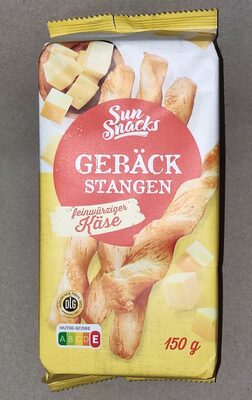
Barcode: 4061458058476
Gebäckstangen – Käse
DOUBTFUL
📝 Reason: The product contains ingredients like cheese and milk powder which are doubtful due to lack of Halal certification and unclear sourcing of rennet. According to Islamic dietary laws, any doubtful ingredient makes the entire product doubtful unless clarified. Quran 5:3 and various Halal certification bodies emphasize the importance of clear Halal certification for animal-derived products.
📄 Certificates: None
Ingredients:
Details
Understanding the Halal Status of Gebäckstangen – Käse
When it comes to food products, understanding their halal status is crucial for Muslim consumers. In this post, we will explore the halal status of Gebäckstangen – Käse, a popular snack, and uncover the reasons why it may be deemed ‘doubtful’ in its halal certification.
What Does ‘Doubtful’ Mean in Halal Terms?
The halal status of a product is classified into three categories: Halal, Haram (forbidden), and doubtful. A product is considered ‘doubtful’ if there are ingredients derived from animal products that lack clear halal certification. In the case of Gebäckstangen – Käse, materials like cheese and milk powder raise concerns due to their sourcing.
Ingredients Breakdown
Let’s take a closer look at the ingredients of Gebäckstangen – Käse:
- Weizenmehl (Wheat Flour): Generally considered Halal as it is a plant-based ingredient.
- Butter: Typically Halal unless sourced from non-Halal animals. No specific certification is noted.
- Geriebener Käse (Grated Cheese): Considered doubtful as it often contains rennet derived from animals that might not be slaughtered according to Islamic law.
- Hefe (Yeast): A microorganism and generally considered Halal.
- Käsepulver (Cheese Powder): Similar to grated cheese, its halal status is doubtful due to unclear sourcing of rennet.
- Salz (Salt): A mineral and universally regarded as Halal.
- Vollmilchpulver (Whole Milk Powder): Its status is doubtful as it may come from cows not slaughtered per halal requirements.
- Gerstenmalzextrakt (Barley Malt Extract): Generally considered Halal as it is derived from barley.
Ingredient Analysis
The ingredients that cause concern in Gebäckstangen – Käse are the various forms of dairy, namely the grated cheese and the whole milk powder. Dairy products, especially those containing rennet, can pose a challenge if the source of rennet is not disclosed. Rennet is an enzyme used in cheese-making, usually derived from the stomachs of ruminant animals, which raises questions about its halal compliance.
As per Islamic dietary laws, any ingredient that is uncertain or not explicitly halal renders the entire product doubtful. The Holy Quran explicitly warns against consuming products that are not halal (Quran 5:3), emphasizing the significance of having clear halal certifications for all food products, especially those containing animal-derived components.
Importance of Halal Certification
Halal certification serves as a confirmation that the product meets the dietary requirements of Islamic law. Unfortunately, Gebäckstangen – Käse lacks credible halal certification, thus making it difficult for consumers to determine its compliance with halal standards. Not all cheese is the same; its production process can vary, and without proper documentation, customers are left pondering its true status.
Conclusion: Should You Consume Gebäckstangen – Käse?
Given the ingredients and lack of certification, it is advised that consumers exercise caution with Gebäckstangen – Käse. The doubtful status implies that unless clear verification of all components is obtained, it might be best to avoid this product if you strictly adhere to halal dietary practices. Always consult halal certification bodies for the most accurate information regarding food products. In summary, while the majority of the ingredients in Gebäckstangen – Käse lean towards being halal, the uncertainty surrounding the cheese, milk powder, and their derivations render the entire product ‘doubtful.’
